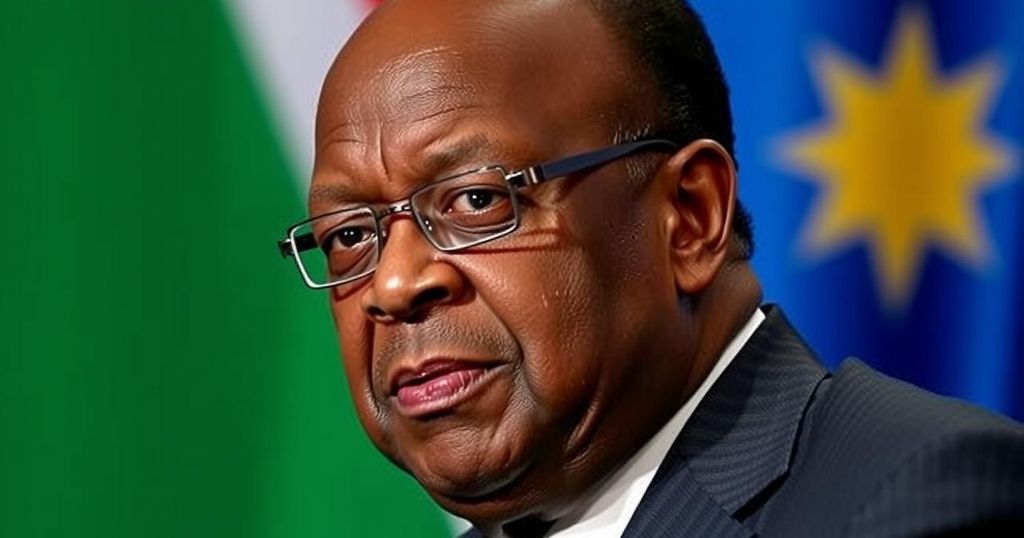President Masisi Concedes Defeat in Botswana’s Historic Parliamentary Elections

Botswana’s President Mokgweetsi Eric Masisi has conceded defeat as the Botswana Democratic Party (BDP) lost its parliamentary majority for the first time since independence. The opposition coalition, led by Duma Boko, has garnered a significant number of seats, indicating a shift in political power. President Masisi acknowledged the overwhelming defeat and expressed readiness for a smooth transition while thanking his supporters.
In a significant political shift in Botswana, President Mokgweetsi Eric Masisi has conceded defeat following a historic loss for his party, the Botswana Democratic Party (BDP), which has dominated the political landscape since the nation gained independence in 1966. As of early Friday morning, the BDP secured only two parliamentary seats, while the opposition coalition, known as the Umbrella for Democratic Change (UDC), led by Duma Boko, won 28 seats, surpassing the threshold required to form a government. Including the Botswana Congress Party (BCP), which obtained eight seats, and the Ian Khama-supported Botswana Patriotic Front (BPF) with five seats, opposition parties collectively captured more than two-thirds of the 61 parliamentary seats. In addressing the nation via a live broadcast on Botswana Television, President Masisi acknowledged the overwhelming loss, stating, “It was clear my party had lost massively.” He expressed his readiness to facilitate a smooth transition of power and extended gratitude for his role as president, remarking, “I had the most interesting presidency, the most challenging … I loved my job, and I am prepared to leave it. Thank you. God bless.” As the nation anticipates official results from the Independent Electoral Commission later on Friday, Mr. Boko appears positioned to assume the presidency once Parliament convenes to elect the new head of state.
Botswana has experienced a stable democratic system since its independence, characterized by regular elections and peaceful transitions of power. The BDP, in power since 1966, has maintained a significant presence in the political arena. However, recent electoral trends indicate a shift in public sentiment, as evidenced by the recent parliamentary elections wherein the BDP’s dominance has been challenged. The political landscape in Botswana has been shaped by various factions and the influence of former leaders, notably Ian Khama, whose relationship with President Masisi soured over time, leading to a division in support among the electorate.
The recent parliamentary elections in Botswana have culminated in a historic defeat for President Mokgweetsi Eric Masisi and the ruling Botswana Democratic Party, signifying a potential turning point in the nation’s political landscape. With the opposition coalition poised to form the next government, this election marks the end of an era for one of Africa’s long-standing ruling parties. President Masisi’s acceptance of defeat and his call for unity among supporters highlight his commitment to a democratic transition, paving the way for a new chapter in Botswana’s governance.
Original Source: www.theeastafrican.co.ke







